Mitarbeiter*innen der Professur Akustik und Haptik
Inhaltsverzeichnis
Leiter der Professur
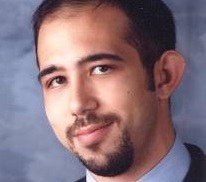 © Ercan Altinsoy
© Ercan Altinsoy
Inhaber der Professur
NameHerr Prof. Dr.-Ing. habil. Ercan Altinsoy
Eine verschlüsselte E-Mail über das SecureMail-Portal versenden (nur für TUD-externe Personen).
Professur für Akustik und Haptik
Professur für Akustik und Haptik
Besucheradresse:
Barkhausenbau, Raum BAR 53 Helmholtzstraße 18
01062 Dresden
None
Hochschullehrer*innen
 © Wolfgang Klippel
© Wolfgang Klippel
Honorarprofessor für Elektroakustik
NameHerr Prof. Dr.-Ing. habil. Wolfgang Klippel (Honorarprofessor für Elektroakustik)
Professur für Akustik und Haptik
Professur für Akustik und Haptik
Besucheradresse:
Barkhausenbau Helmholtzstraße 18
01062 Dresden
None
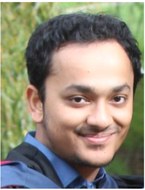 © Anindya Nag
© Anindya Nag
Herr Juniorprofessor Dr. Anindya Nag
Eine verschlüsselte E-Mail über das SecureMail-Portal versenden (nur für TUD-externe Personen).
Besuchsadresse:
Barkhausenbau, Dresden Helmholtzstraße 18
01069 Dresden
Zugang über BAR 77
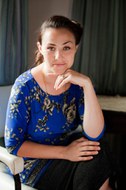 © Merle Fairhurst
© Merle Fairhurst
Juniorprofessorin Dr. Merle Fairhurst
Eine verschlüsselte E-Mail über das SecureMail-Portal versenden (nur für TUD-externe Personen).
Dozent*innen und Lehrbeauftragte
Dozent
NameHerr Dr.-Ing. Hans-Jörg Ederer
Professur für Akustik und Haptik
Professur für Akustik und Haptik
Besucheradresse:
Barkhausenbau Helmholtzstraße 18
01062 Dresden
None
Sekretärin
 © Bianka Pohle
© Bianka Pohle
Sekretärin
NameFrau Bianka Pohle
Eine verschlüsselte E-Mail über das SecureMail-Portal versenden (nur für TUD-externe Personen).
Professur für Akustik und Haptik
Professur für Akustik und Haptik
Besucheradresse:
Barkhausenbau, Raum BAR 54 Helmholtzstraße 18
01062 Dresden
None
Wissenschaftliche Mitarbeiter*innen
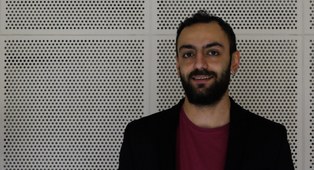 © Alican Alma
© Alican Alma
Mitarbeiter
NameHerr Ugur Alican Alma M.Sc.
Eine verschlüsselte E-Mail über das SecureMail-Portal versenden (nur für TUD-externe Personen).
Professur für Akustik und Haptik
Professur für Akustik und Haptik
Besucheradresse:
Barkhausenbau, Raum BAR 58 Helmholtzstraße 18
01062 Dresden
None
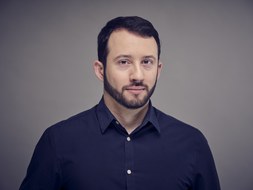 © Profile_PabloAlvarezRomeo
© Profile_PabloAlvarezRomeo
Mitarbeiter
NameHerr Pablo Alvarez Romeo Msc.
Eine verschlüsselte E-Mail über das SecureMail-Portal versenden (nur für TUD-externe Personen).
Professur für Akustik und Haptik
Professur für Akustik und Haptik
Besucheradresse:
Barkhausenbau, Raum BAR 57 Helmholtzstraße 18
01062 Dresden
None
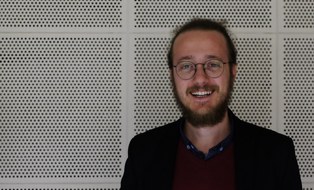 © Serkan Atamer
© Serkan Atamer
Mitarbeiter
NameHerr Dr.-Ing. Serkan Atamer
Eine verschlüsselte E-Mail über das SecureMail-Portal versenden (nur für TUD-externe Personen).
Professur für Akustik und Haptik
Professur für Akustik und Haptik
Besucheradresse:
Barkhausenbau, Raum BAR 62 Helmholtzstraße 18
01062 Dresden
None
 © Margret Engel
© Margret Engel
Mitarbeiterin
NameFrau Dr. Margret Engel
Eine verschlüsselte E-Mail über das SecureMail-Portal versenden (nur für TUD-externe Personen).
Professur für Akustik und Haptik
Professur für Akustik und Haptik
Besucheradresse:
Barkhausenbau, Raum BAR 77 Helmholtzstraße 18
01062 Dresden
None
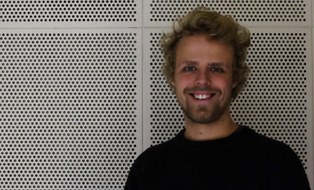 © Friedrich Beyer
© Friedrich Beyer
Mitarbeiter
NameHerr Dipl.-Ing. Friedrich Beyer
Eine verschlüsselte E-Mail über das SecureMail-Portal versenden (nur für TUD-externe Personen).
Professur für Akustik und Haptik
Professur für Akustik und Haptik
Besucheradresse:
Barkhausenbau, Raum BAR 57 Helmholtzstraße 18
01062 Dresden
None
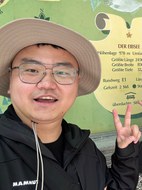 © Likun Fang
© Likun Fang
Mitarbeiter
NameHerr Dr.-Ing. Likun Fang .
Eine verschlüsselte E-Mail über das SecureMail-Portal versenden (nur für TUD-externe Personen).
Professur für Akustik und Haptik
Professur für Akustik und Haptik
Besucheradresse:
Barkhausenbau, Raum BAR 77 Helmholtzstraße 18
01062 Dresden
None
Frau Ayse Glas M.Sc.
Eine verschlüsselte E-Mail über das SecureMail-Portal versenden (nur für TUD-externe Personen).
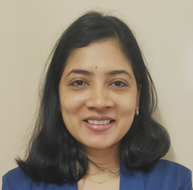 © Harija Harikumar
© Harija Harikumar
Mitarbeiterin
NameFrau Harija Harikumar M. Tech.
Eine verschlüsselte E-Mail über das SecureMail-Portal versenden (nur für TUD-externe Personen).
Professur für Akustik und Haptik
Professur für Akustik und Haptik
Besucheradresse:
Barkhausenbau, Raum BAR 77A Helmholtzstraße 18
01062 Dresden
None
Herr Sinan Inanli M.Sc.
Eine verschlüsselte E-Mail über das SecureMail-Portal versenden (nur für TUD-externe Personen).

Mitarbeiter
NameHerr Dipl.-Ing. Robert Kirchner
Eine verschlüsselte E-Mail über das SecureMail-Portal versenden (nur für TUD-externe Personen).
Professur für Akustik und Haptik
Professur für Akustik und Haptik
Besucheradresse:
Barkhausenbau, Raum BAR 58 Helmholtzstraße 18
01062 Dresden
None
Mitarbeiter
NameHerr Berkay Kullukcu M.Sc.
Eine verschlüsselte E-Mail über das SecureMail-Portal versenden (nur für TUD-externe Personen).
Professur für Akustik und Haptik
Professur für Akustik und Haptik
Besucheradresse:
Barkhausenbau, Raum BAR 62 Helmholtzstraße 18
01062 Dresden
None
Mitarbeiter
NameHerr Jonas Krautwurm Dipl.-Ing.
Eine verschlüsselte E-Mail über das SecureMail-Portal versenden (nur für TUD-externe Personen).
Professur für Akustik und Haptik
Professur für Akustik und Haptik
Besucheradresse:
Barkhausenbau, Raum BAR 63 Helmholtzstraße 18
01062 Dresden
None
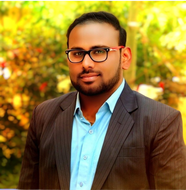 © Suresh Nuthalapati
© Suresh Nuthalapati
Mitarbeiter
NameHerr Dr. Suresh Nuthalapati
Eine verschlüsselte E-Mail über das SecureMail-Portal versenden (nur für TUD-externe Personen).
Professur für Akustik und Haptik
Professur für Akustik und Haptik
Besucheradresse:
Barkhausenbau, Raum BAR 77A Helmholtzstraße 18
01062 Dresden
None
Herr Mehmet Sait Oezer PhD
Eine verschlüsselte E-Mail über das SecureMail-Portal versenden (nur für TUD-externe Personen).
Professur für Akustik und Haptik
Professur für Akustik und Haptik
Besucheradresse:
Barkhausenbau, BAR 60 Helmholtzstraße 18
01062 Dresden
None
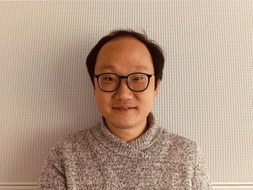 © Seonghyeon Kim
© Seonghyeon Kim
Mitarbeiter
NameHerr Seonghyeon Kim M.Sc.
Eine verschlüsselte E-Mail über das SecureMail-Portal versenden (nur für TUD-externe Personen).
Professur für Akustik und Haptik
Professur für Akustik und Haptik
Besucheradresse:
Barkhausenbau, Raum BAR 57 Helmholtzstraße 18
01062 Dresden
None
Mitarbeiterin
NameFrau Dipl.-Ing. Maria Mareen Maravich
Eine verschlüsselte E-Mail über das SecureMail-Portal versenden (nur für TUD-externe Personen).
Professur für Akustik und Haptik
Professur für Akustik und Haptik
Besucheradresse:
Barkhausenbau, Raum BAR 63 Helmholtzstraße 18
01062 Dresden
None
 © Sebastian Merchel
© Sebastian Merchel
Mitarbeiter
NameHerr Dr.-Ing. Sebastian Merchel
Eine verschlüsselte E-Mail über das SecureMail-Portal versenden (nur für TUD-externe Personen).
Professur für Akustik und Haptik
Professur für Akustik und Haptik
Besucheradresse:
Barkhausenbau, Raum BAR 59 Helmholtzstraße 18
01062 Dresden
None
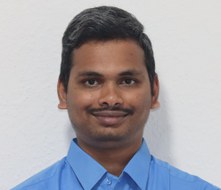 © Gangadhar Mamillapalli
© Gangadhar Mamillapalli
Mitarbeiter
NameHerr Gangadhar Mamillapalli M.Sc.
Eine verschlüsselte E-Mail über das SecureMail-Portal versenden (nur für TUD-externe Personen).
Professur für Akustik und Haptik
Professur für Akustik und Haptik
Besucheradresse:
Barkhausenbau, Raum BAR 78 Helmholtzstraße 18
01062 Dresden
None
 © Robert Rosenkranz
© Robert Rosenkranz
Mitarbeiter
NameHerr Dr.-Ing. Robert Rosenkranz
Eine verschlüsselte E-Mail über das SecureMail-Portal versenden (nur für TUD-externe Personen).
Professur für Akustik und Haptik
Professur für Akustik und Haptik
Besucheradresse:
Barkhausenbau, Raum BAR 60 Helmholtzstraße 18
01062 Dresden
None
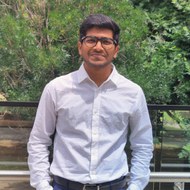 © Aniket Chakraborthy
© Aniket Chakraborthy
Mitarbeiter
NameHerr Aniket Chakraborthy M. Tech.
Eine verschlüsselte E-Mail über das SecureMail-Portal versenden (nur für TUD-externe Personen).
Professur für Akustik und Haptik
Professur für Akustik und Haptik
Besucheradresse:
Barkhausenbau, Raum BAR 77A Helmholtzstraße 18
01062 Dresden
None
Mitarbeiterin
NameFrau Lisa Steinbach (geb. Wilholt) M.Sc.
Eine verschlüsselte E-Mail über das SecureMail-Portal versenden (nur für TUD-externe Personen).
Professur für Akustik und Haptik
Professur für Akustik und Haptik
Besucheradresse:
Barkhausenbau, Raum BAR 62 Helmholtzstraße 18
01062 Dresden
None
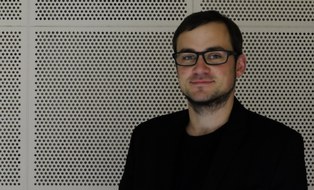 © Tom Wühle
© Tom Wühle
Mitarbeiter
NameHerr Dipl.-Ing. Tom Wühle
Eine verschlüsselte E-Mail über das SecureMail-Portal versenden (nur für TUD-externe Personen).
Professur für Akustik und Haptik
Professur für Akustik und Haptik
Besucheradresse:
Barkhausenbau, Raum BAR 57 Helmholtzstraße 18
01062 Dresden
None
 © No
© No
Mitarbeiterin
NameFrau Irene Valori M.Psych.
Eine verschlüsselte E-Mail über das SecureMail-Portal versenden (nur für TUD-externe Personen).
Professur für Akustik und Haptik
Professur für Akustik und Haptik
Besucheradresse:
Barkhausenbau, Raum BAR 74 Helmholtzstraße 18
01062 Dresden
None
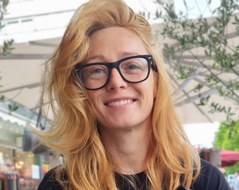 © Grace Whitaker
© Grace Whitaker
Mitarbeiterin
NameFrau Dr. Grace A. Whitaker
Eine verschlüsselte E-Mail über das SecureMail-Portal versenden (nur für TUD-externe Personen).
Professur für Akustik und Haptik
Professur für Akustik und Haptik
Besucheradresse:
Barkhausenbau, Raum BAR 74 Helmholtzstraße 18
01062 Dresden
None
Mitarbeiter
NameHerr Hans Winger Dipl.-Ing.
Eine verschlüsselte E-Mail über das SecureMail-Portal versenden (nur für TUD-externe Personen).
Professur für Akustik und Haptik
Professur für Akustik und Haptik
Besucheradresse:
Barkhausenbau, Raum BAR S66 Helmholtzstraße 18
01062 Dresden
None
Mitarbeiter
NameHerr Ivan Zozulia M.Sc.
Eine verschlüsselte E-Mail über das SecureMail-Portal versenden (nur für TUD-externe Personen).
Professur für Akustik und Haptik
Professur für Akustik und Haptik
Besucheradresse:
Barkhausenbau, Raum BAR 78 Helmholtzstraße 18
01062 Dresden
None
 © Benjamin Zenker
© Benjamin Zenker
Mitarbeiter
NameHerr Dipl.-Ing. Benjamin Zenker
Eine verschlüsselte E-Mail über das SecureMail-Portal versenden (nur für TUD-externe Personen).
Professur für Akustik und Haptik
Professur für Akustik und Haptik
Besucheradresse:
Barkhausenbau, Raum BAR 57 Helmholtzstraße 18
01062 Dresden
None
Technische Mitarbeiter*innen
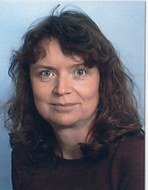 © Margitta Lachmann
© Margitta Lachmann
Technische Mitarbeiterin
NameFrau Dipl.-Ing. (FH) Margitta Lachmann
Eine verschlüsselte E-Mail über das SecureMail-Portal versenden (nur für TUD-externe Personen).
Professur für Akustik und Haptik
Professur für Akustik und Haptik
Besucheradresse:
Barkhausenbau, Raum BAR 63 Helmholtzstraße 18
01062 Dresden
None
